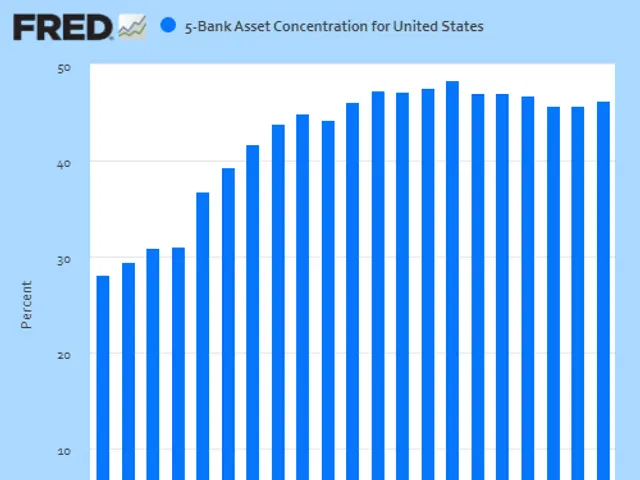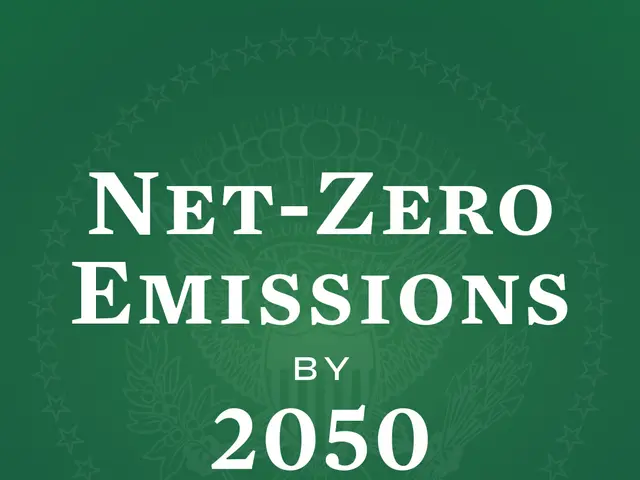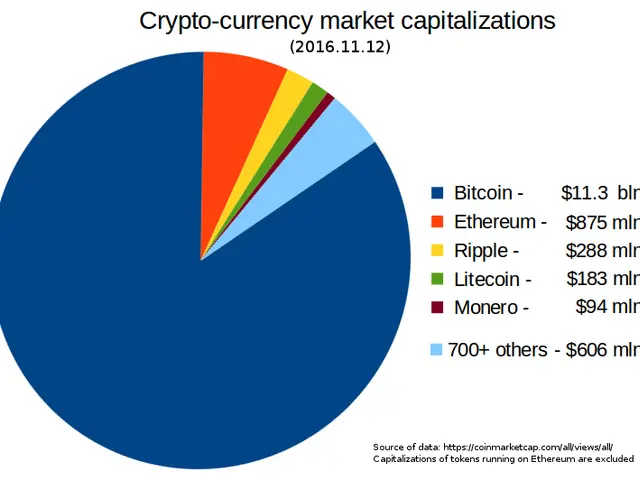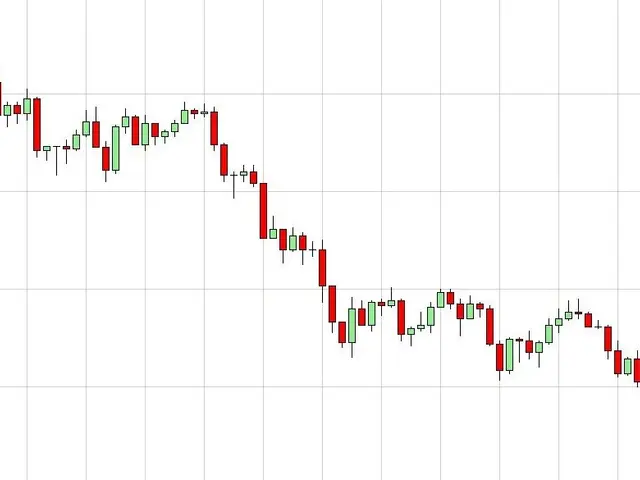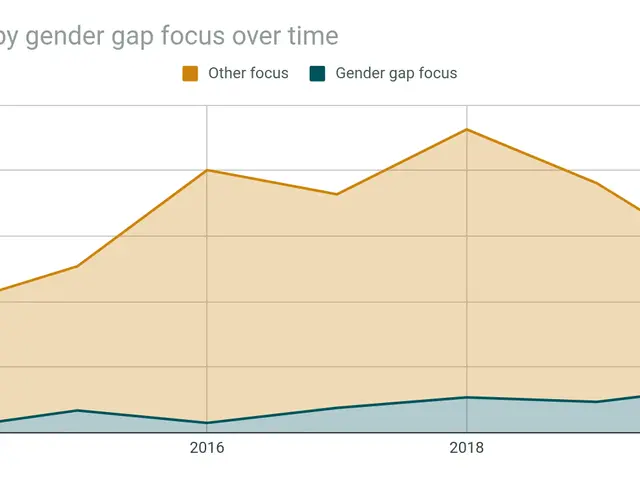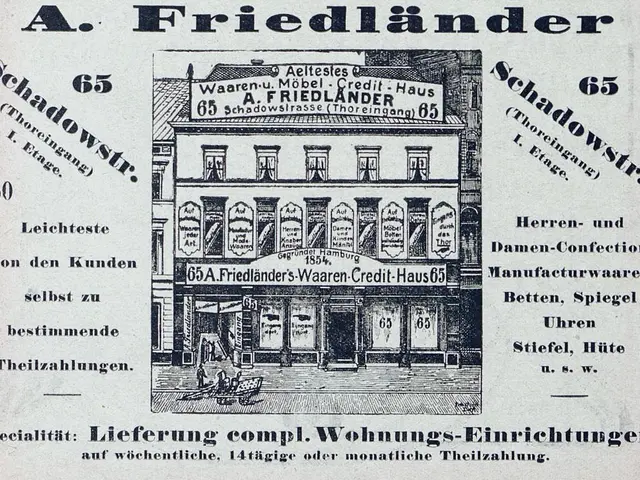German industry's purchase orders at an all-time peak
Water Woes on the Rhine: A Looming Crisis for Germany's Industries
The Rhine, Germany's most crucial waterway, is grappling with record-low water levels, causing tumultuous ripples across several industries. In a concerning turn of events, the water level in Emmerich dropped to a record-breaking -2 centimeters on a crisp Wednesday morning, restricting shipping activities [1]. Thismême, the apparent dawn of better days brought by new rainfall remains suspect, as the storm clouds of uncertainty linger.
The predicament is exacerbating an already precarious economic situation in the country. With the Lower Rhine rendering support to only a fraction of inland vessels, industry associations like the BDI are alarmed by the connotations. "Prolonged drought and low water levels spell danger for industry supply security," cautioned BDI Vice-Chief Executive Holger Loesch. "It's merely a matter of time before plants in the chemical or steel industry shut down or essential goods fall short of their destinations."
The BDI signals a grim forecast, with a potential escalation of supply chain bottlenecks, reduced production, temporary layoffs, and an intensified energy crisis [1]. The prospect of steel and chemical giants like Thyssenkrupp and BASF being impaired raises concerns about Germany's economic resilience.
A Stagnating Economy on the Brink
The looming dilemma over the Rhine's water levels compliments an unfavorable economic climate. Fueled by the Ukraine war, high inflation, and impending interest rate hikes, Germany's economic outlook looks grim. The ZEW index, a pulse of the nation's economic health, fell sharply in August to -55.3 points, much lower than expected [2]. Economists have adjusted their forecasts, with most now expecting a decline in economic output in the third quarter, teetering on the brink of a recession.
Growing Unease in 2023
A recession, it seems, may be an inevitable reality for Germany next year, with most economists predicting a one percent contraction in GDP [2]. This follows a stagnant second quarter and a minor growth of 0.8 percent in the first quarter of 2022 [2].Adding fuel to the fire, a planned gas surcharge of 2.419 cents per kilowatt hour for consumers from October could further dim the prospects of private consumptionproviding an economic boost in the second half of the year.
German households are expecting to lose approximately 70 billion euros in purchasing power due to higher energy costs this year, with an additional 70 billion euros expected to disappear in 2023 [2].
Parallel to these dampened economic anticipations, the Federal Statistical Office reported an all-time high in industry's order backlog [2]. Despite a 0.5 percent increase in orders compared to the previous month and a 14 percent surge year-on-year [2], many companies struggle to fulfill orders due to supply chain disruptions.
A Silver Lining Ahead?
The high order backlog, according to the chief economist of Berenberg Bank, Holger Schmieding, implies that industry may weather the impending recession fairly well [2]. However, the potentiality of order cancellations is a concern. Resolution of supply chain challenges in the coming months could eventually trigger an increase in production.
Investments in river infrastructure and relying on alternative transportation methods can also help in mitigating future impacts. Adaptive measures to deal with low water levels could prove beneficial, as could the pursuit of climate change policies to combat extreme weather patterns, which contribute to these recurring droughts and water level fluctuations [5].
In the Wake of Calamity: Seeking Solutions
Having experienced the tangible effects of prolonged low water levels on the Rhine, the urgency for adaptation becomes increasingly palpable. The German economy appears to be standing at the precipice of a wave of crises – be it the energy crisis, inflation, or the recession. Faced with adversity, Germany must rally its forces, marshalling resilience and determination to navigate these turbulent seas.
- The continued low water levels on the Rhine are adding to Germany's economic woes, particularly in industries heavily reliant on the waterway for shipping, such as the chemical and steel industries.
- As Germany's economy faces a looming recession due to factors such as the Ukraine war, high inflation, and impending interest rate hikes, the dwindling Rhine water levels exacerbate the economic outlook.
- The Federal Statistical Office reported an all-time high in industry's order backlog, suggesting that the industries may be able to weather the recession, but the potentiality of order cancellations remains a concern.
- In an effort to mitigate future impacts, investments in river infrastructure, alternative transportation methods, and the pursuit of climate change policies could prove beneficial in combating extreme weather patterns and recurring droughts.

